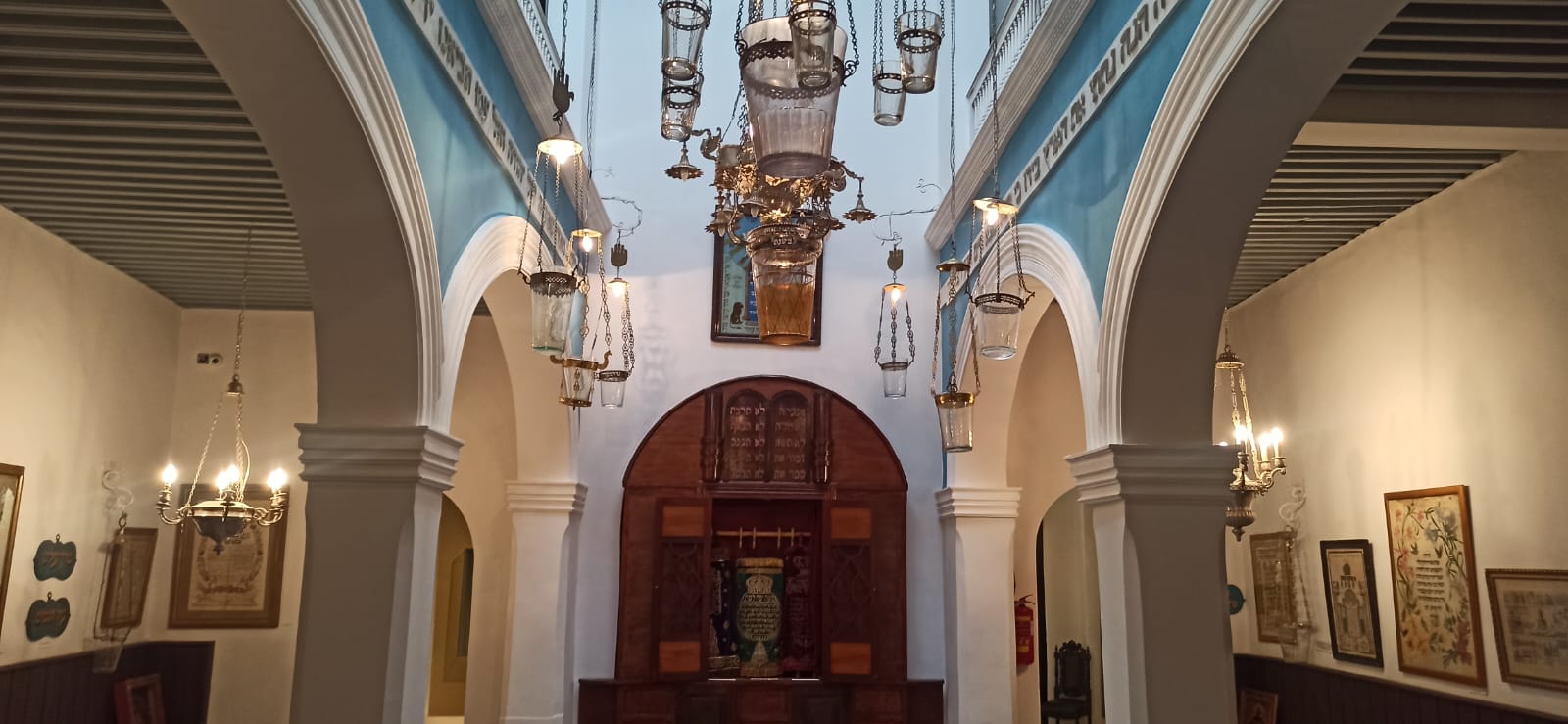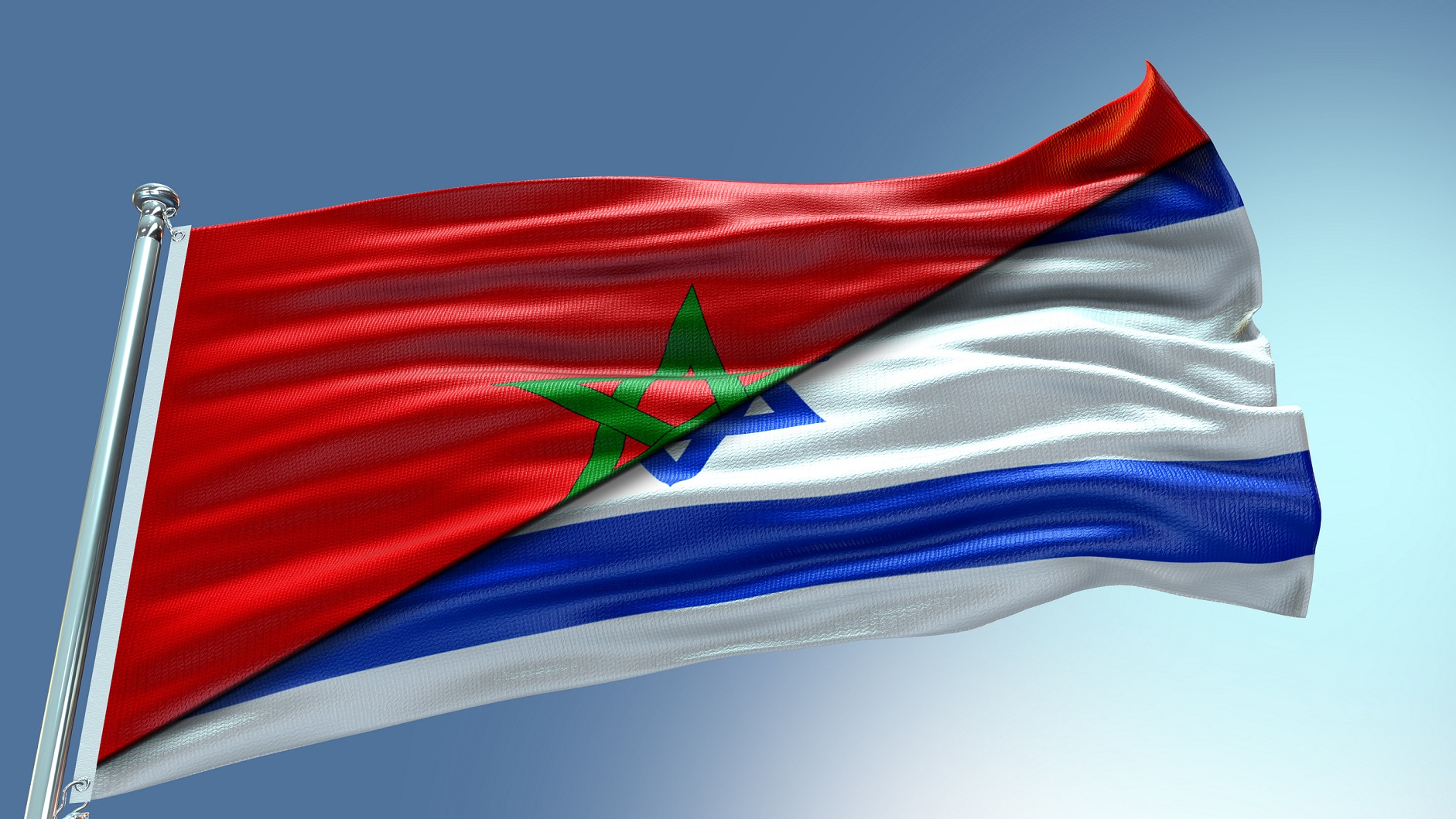Publications
INSS Insight No. 1675, December 26, 2022
The recently opened Beit Yehouda Jewish museum in Tangier is a prime example of Morocco’s commitment to Judeo-Islamic coexistence. The kingdom embraces its Jewish heritage for an array of historic and contemporary economic and other reasons that attest to its pluralistic image. At the same time, Israel-Morocco ties are also influenced by King Mohammed VI’s religious role and his commitment to advance a solution to the Israeli-Palestinian conflict. To foster the encouraging trends in the relations with Morocco, the new Israeli government should capitalize on the countries’ shared heritage and cultural affinity as a lever for enhancing dialogue and cooperation; recognize the Moroccan King’s intricate position vis-à-vis the Israeli-Palestinian political process and Jerusalem; and consider ways to best relate to the monarchy’s discourse of religious and cultural tolerance.
One of the challenges facing the new Israeli government will be to maintain the positive momentum of the religio-cultural normalization between Israel and Morocco. In the two years since the Israel-Morocco normalization agreement of December 22, 2020, the Moroccan government has stepped up its national project to platform Moroccan Jewish life: from launching a plan to restore hundreds of Jewish sites, to establishing the country’s first university campus synagogue, to institutionalizing the Jewish community’s contribution to Morocco’s culture.
The commitment to Judeo-Islamic coexistence is well exemplified by the new Beit Yehouda Jewish museum in Tangier housed in the Assayag synagogue – the third Jewish museum in Morocco and the second to be inaugurated this year – which opened last August thanks to financial support from King Mohammed VI. Although the funding was earmarked in 2019, before the signing of the 2020 Abraham Accords, these developments have all been driven by Morocco’s commitment to its multicultural identity.
Tangier stood out from other Moroccan cities as the only one lacking a mellah (Jewish quarter). This high degree of inclusion allowed Tangier’s Jewish community to make significant contributions to the larger Tangérois society, such as founding a hospital and acting as intermediaries to European business interests. However, the majority of Tangier’s roughly 18,000 Jews emigrated in the 1950s due to tensions between Morocco and the newly founded state of Israel. Today only about 30 Jews live in Tangier, where they remain committed to the city's model of coexistence.
The tall, white walls of the Beit Yehouda museum are decorated with dozens of Tangérois Jewish artifacts – Torah scrolls, ketubot (Jewish wedding documents), maps, and metalwork – saved from shuttered local synagogues over the decades by Madame Sonia Cohen Azagury, a Tangérois Jewish leader who has long championed the preservation of local Jewish culture. She explained that the integration of elements from Hebrew, French, Haketia (a traditional form of Spanish spoken by Sephardi Jews in the Maghreb), and Maghrebi Islamic architecture helps familiarize visitors with a cultural milieu that is both Jewish and Moroccan, as well as Mediterranean and Atlantic.
The King’s role in the restoration of Beit Yehouda is highlighted in the museum’s entryway, as part of an exhibition documenting the restoration process. A personal message from the King, asserting his responsibility as the defender of Morocco’s diverse religious and ethnic communities, is displayed prominently.

“The Jews are My Children, as are All Moroccans”
Morocco’s positive attitude toward its Jewish heritage is rooted in broader perceptions of the country’s national identity and engagement with Moroccan diasporas. The ancient Jewish community in Morocco generally maintained good relations with the Muslim majority, and the Moroccan monarchs consistently demonstrated tolerant and accepting attitudes toward its Jewish population. King Hassan II, father of King Mohammed VI, said on various occasions that the Jews are an inseparable part of Morocco, arriving there even before Islam.
This rhetoric is not limited to communication with the Jewish community or Israeli representatives. In an opening of an international conference in Fez in November, Andre Azoulay, a Jewish Moroccan senior advisor to King Mohammed VI, addressed the crowd on behalf of the King, saying that his grandfather protected the Jewish countrymen in the face of Nazi barbarism, his father nurtured the spirit of brotherhood between Moroccan Jews and Muslims, and he has worked personally to enhance and safeguard the Moroccan Jewish heritage.
Attitudes toward Judaism are rooted in a broader agenda cultivated by King Mohammed VI to promote a national identity characterized by religious, cultural, and ethnic pluralism, as documented by the country’s 2011 constitution, which stipulates that Moroccan unity “is forged by the convergence of its Arab-Islamist, Berber [amazighe] and Saharan-Hassanic components, nourished and enriched by its African, Andalusian, Hebraic and Mediterranean influences.”
Indeed, Morocco invests considerable efforts in cultivating ties with Moroccan diasporas abroad. According to official state estimates, the Moroccan diaspora consists of some five million Moroccans, comprising approximately 15 percent of the overall population. Notably, Morocco views Israelis of Moroccan descent as part of its diaspora abroad, and refers to this community as the second largest Moroccan diaspora after the community in France, consisting of some 800,000 individuals. A telling example dates back to 1956, against the backdrop of Israeli efforts to enable Moroccan Jews to emigrate to Israel, when King Mohammed V said that “the Jews are my children, as are all Moroccans.”
Beyond history and tradition, there are several more contemporary drivers behind Moroccan efforts of preserving the heritage of its Jewish community. One is the goal to engage with its diaspora in Israel. Although Morocco had protected Jewish sites even prior to the renewal of relations with Israel, speculations are that this trend has intensified in light of hopes of attracting more Israeli tourists to the Kingdom. Adel El Fakir, CEO of the Moroccan National Tourism Office, said recently that the goal is to increase the number of Israeli tourists to Morocco almost threefold – from 70,000 to 200,000.
Alongside economic considerations, platforming Jewish-Moroccan heritage bolsters the King’s legitimacy as the guardian of a multi-ethnic, multi-faith Moroccan society, via the claim to the role of “Amir al-Mu'minin” (Commander of the Faithful), a unique title anchored in the country’s constitution; hence the reference in the royal address delivered by Azoulay: “As Commander of the Faithful – all the Faithful – I guarantee the free exercise of worship throughout the Kingdom of Morocco.”
The Palestinian Side of the Coin
At the same time, the King's responsibilities as Amir al-Mu'minin ultimately limit his ability to further bilateral ties with Israel. While Morocco embraces its Jewish heritage, Israeli-Moroccan ties remain limited by the monarchy’s commitment to the Palestinian cause, resulting in a thus far successful balancing act. The King, in line with his predecessors, has made the Palestinian issue a clear priority, even making a rare live appearance in November to reaffirm his commitment on this front. In a speech delivered on the International Day of Solidarity with the Palestinian people, the King reiterated Morocco’s support for the rights of Palestinian people and the two-state solution.
The King is also chair of the Organization of Islamic Cooperation’s Quds Committee, through which he exercises influence over the Islamic discourse vis-à-vis the Arab-Israeli conflict and bears responsibility for Jerusalem’s Islamic sites and communities. This role takes on a religious significance in the context of the King’s effort to increase his religious legitimacy. Accordingly, this both empowers the King to tone down rhetoric surrounding the Israeli-Palestinian conflict and limits his ability to deepen ties with Israel during times of escalation.
The monarchy’s commitment to the Palestinians as well as to Muslim rights in Jerusalem reflects a prevalent sentiment in Morocco, as well as in the Arab and Muslim world more broadly. This was manifested during the recent World Cup in Qatar, where the Palestinian flag was ubiquitous among Arab fans, even though the Palestinian national team has yet to qualify for the tournament. The Moroccan national team even raised the flag after winning several matches, alongside the Moroccan flag. Public sentiment on the Palestinian issue is particularly relevant in light of accusations toward the Moroccan King of having betrayed the Palestinians when renewing overt ties with Israel, making it virtually impossible to ignore for long.
Policy Recommendations
The positive momentum in Israel-Morocco relations cannot be taken for granted in light of the challenges that these relations face, chief among them Morocco's position toward the Palestinians. Another issue that might dampen relations is the question of Israeli recognition of Morocco's sovereignty in Western Sahara, a key issue in Moroccan foreign relations and where it expects clear support from its allies, including Israel. Israel’s new government, therefore, will have to invest carefully to sustain the current pace of normalization. This insight leads to several policy recommendations:
First, the new government should take into account King Mohammed VI’s intricate position vis-à-vis the Israeli-Palestinian conflict, and the effect that it might have on Israeli-Moroccan relations. Escalation in the conflict, and perceived threats to East Jerusalem and its Muslim holy sites in particular, could have a detrimental effect – as history has shown. The government would thus do well to avoid fanning religious tensions in Jerusalem, and concurrently, prepare for escalation scenarios. In addition, in light of Morocco’s special standing in Jerusalem, the government should consider ways in which the King could perform a more active role in the city – with Israeli, Palestinian, and Jordanian approval and support.
Second, Israel should capitalize on the overlapping aspects of its history with Morocco to further develop the bilateral relations, especially in civilian ties: in sports, academia, arts, and culture, where people-to-people connection is paramount. This way, the countries’ shared heritage and cultural affinity could serve as a lever for enhancing dialogue and cooperation.
A final recommendation stems from a broader understanding of the Abraham Accords and the values they embody. Hardline religious discourse encumbers the ability to promote dialogue and construct mutually respectful and tolerant narratives. Israeli representatives are therefore encouraged to promote ways to engage with Moroccan discourse on religious and cultural pluralism, and consider concrete policies and activities that could advance these ideas, such as promoting dialogue and coexistence between Jews and Muslims in Israel and beyond. Such policies could increase Israel’s ability to further develop ties with Arab and Muslim countries – and benefit Israeli society as well.



